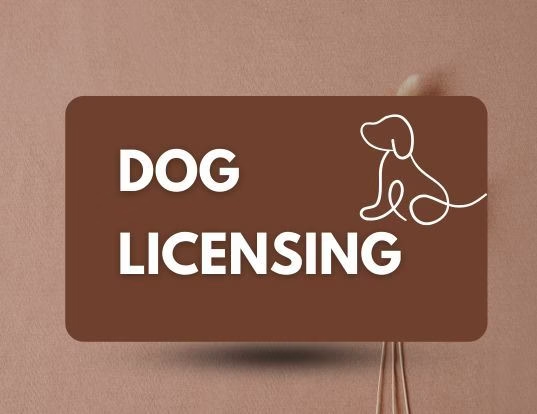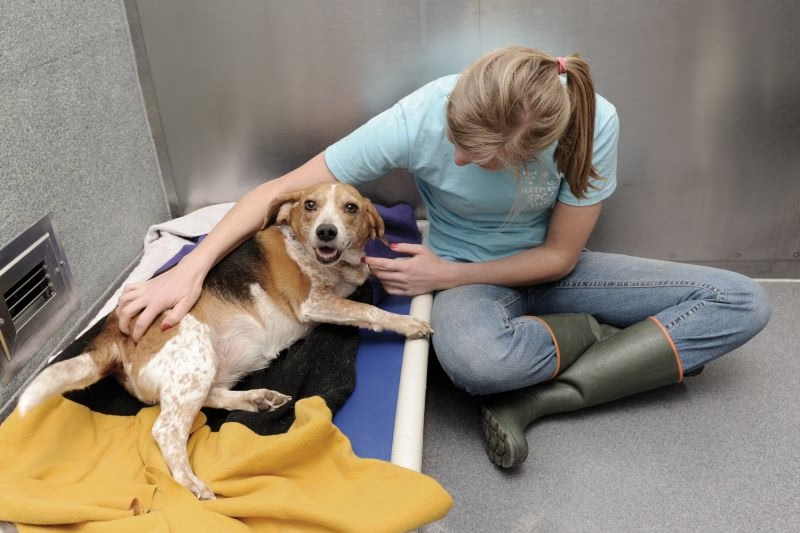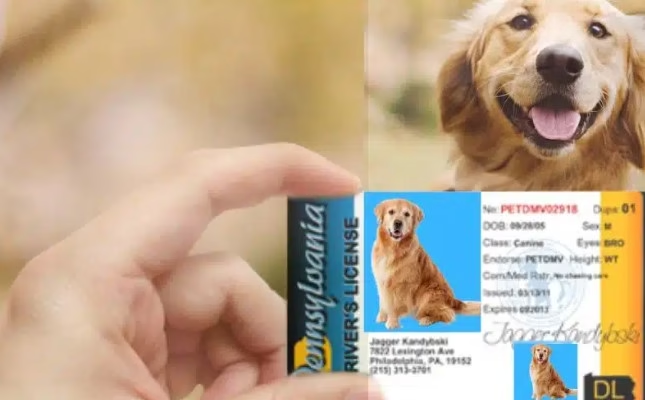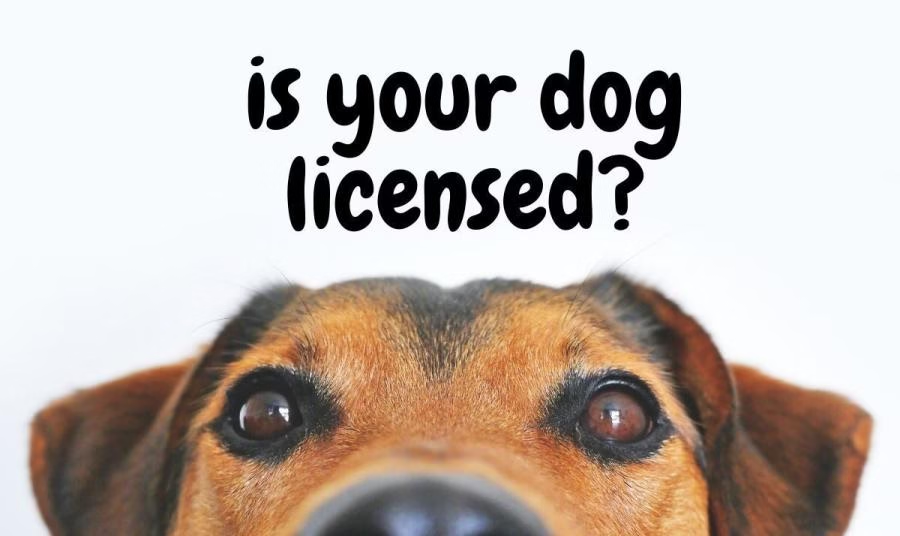What Happens If You Don’t License Your Dog? Legal and Financial Risks Explained
Introduction
license your dog might seem like a minor detail in pet ownership, but it carries serious legal and financial implications if ignored. Many pet owners are unaware that failing to license their license your dog can lead to fines, legal action, or even losing custody of their beloved pet. Licensing is not just about following the law—it helps ensure your dog is vaccinated, traceable, and protected in case they get lost. Most cities and counties across the U.S. require dogs over a certain age to be licensed annually, and penalties for non-compliance can be steep.
Beyond the law,license your dog supports public health initiatives and local animal shelters, providing essential services that benefit the entire community. In this article, we’ll explore what happens if you don’t license your dog, the legal and financial risks involved, and why staying compliant is crucial for responsible pet ownership.
What Is Dog Licensing?

Dog licensing is a legal requirement in most cities and counties that involves registering your pet with local authorities. It typically requires proof of up-to-date rabies vaccinations and basic information about your dog, such as breed, age, and color. Once registered, you receive a license tag your dog must wear at all times. Licensing helps identify your pet if lost, ensures public safety, and enables local governments to fund essential animal services. It’s a small but vital step in responsible dog ownership.
Why Dog Licensing Is Legally Required
license your dog laws are in place to protect both pets and the public. Local governments require licenses to ensure dogs are vaccinated against rabies and to keep track of the pet population. These regulations help fund animal control services, manage stray animals, and promote community health. Failing to license your dog is often considered a civil infraction or misdemeanor, depending on your location. Compliance isn’t optional—it’s the law, and neglecting it could result in fines or other legal consequences.
Legal Consequences of Not Licensing Your Dog
Ignoring license your dog laws can lead to a range of legal consequences. Most jurisdictions impose fines that increase the longer your dog remains unlicensed. In some areas, repeated violations may result in court appearances or even temporary seizure of your pet by animal control. If your unlicensed dog bites someone or is found wandering, the lack of registration could complicate legal matters and raise questions about your liability. Simply put, not licensing your dog puts you and your pet at unnecessary legal risk.
Financial Risks and Hidden Costs
Not licensing your license your dog can lead to significant financial consequences. The fines for failing to register your pet can be substantial, and they often increase for repeat offenders. Additionally, if your license your dog ends up in a shelter due to being lost or unlicensed, you may face extra fees for retrieval, vaccination, and other services. These costs can quickly add up, making it far more expensive than simply paying the initial licensing fee. The financial burden of non-compliance can be avoided with proper registration.
Animal Control and Shelter Implications

When a license your dog isn’t licensed, it becomes harder for animal control to reunite the pet with its owner if it goes missing. Unlicensed dogs may be taken to a shelter, where they could face extended stays, increased adoption risks, or even euthanasia if unclaimed. Furthermore, shelters are often under-resourced, and a lack of proper identification makes it more difficult for staff to track the dog’s health and vaccination status. Licensing provides an effective way to ensure your dog is cared for in emergencies and has a higher chance of being returned to you.
Health and Safety Regulations
license your dog isn’t just about following the law—it’s also a key part of public health and safety. Many regions require that dogs be vaccinated against rabies before they can be licensed. This helps reduce the risk of rabies transmission between pets and humans. Additionally, licensed dogs are more likely to be in better health since they are regularly checked by veterinarians to meet licensing requirements. By ensuring your dog is licensed, you’re also protecting your community and preventing the spread of preventable diseases.
Impact on Insurance and Liability
Not license your dog can have an impact on your homeowner’s or renter’s insurance policy. Some insurance companies may refuse coverage or increase premiums if your dog is unlicensed. In cases where your unlicensed dog causes damage or injury, the lack of registration may complicate claims or legal liability. If your dog bites someone or causes an accident, having proper documentation helps establish that you are a responsible pet owner, reducing potential risks associated with lawsuits and insurance claims.
Community and Ethical Responsibilities
As a license your dog owner, it’s important to recognize that licensing isn’t just about following the law—it’s also a matter of ethical responsibility. Licensing helps fund local animal shelters, animal control services, and community health initiatives that benefit all residents. By registering your pet, you contribute to the overall well-being of the community, ensuring that resources are available for lost or abandoned animals. It’s a small action that demonstrates your commitment to being a responsible pet owner and supporting local public services.
How to License Your Dog Properly

license your dog is a straightforward process that can typically be done online or at your local animal control office. The required documentation usually includes proof of rabies vaccination and basic information about your dog. In some areas, you may need to renew the license annually. Make sure to keep the license tag on your dog at all times to comply with local laws. Staying up to date on your dog’s registration ensures you avoid unnecessary fines and keep your pet’s records accurate.
Conclusion
license your dog is more than a legal requirement—it’s an essential step in responsible pet ownership. Not only does it help prevent legal and financial penalties, but it also ensures your dog’s safety, health, and well-being. By licensing your pet, you support animal control services and contribute to community health. The process is simple and affordable, offering peace of mind for both you and your pet. Make sure to stay compliant with your local licensing laws to avoid unnecessary risks and keep your dog protected.
You Can Also Read: Top 10 Types Pets you Don’t Want Lose
FAQS
What happens if your pet is microchipped?
A microchip isn’t the same as a GPS device, and it can’t be used to track your pet’s whereabouts. It’s simply a unique identifier (think of it as your pet’s social security number) that is implanted so it can’t be lost. Microchips are an essential backup option for pet identification but should never be the main one.
What happens if my dog is microchipped but not registered?
If a pet is microchipped but not registered, it means the physical chip is in their body but there is no information stored in the company’s database. So if you pet got lost and the pound (or vet or whomever) scanned the pet, it would show there was a chip but there would be no information to lead your pet back to you.
What are the disadvantages of microchipping?
Some other risks include electrical hazards, adverse tissue reactions, infections and incompatibility with medical equipment such as MRIs machines. During an MRI scan, patients cannot take anything metal, including microchips.
Is a pet microchip proof of ownership?
No, a microchip alone is not proof of legal ownership.
Can a dog be traced if microchipped?
The microchip is not a GPS device and cannot track your animal if it gets lost. Although the microchip itself does not contain your pet’s medical information, some microchip registration databases will allow you to store that information in the database for quick reference.
